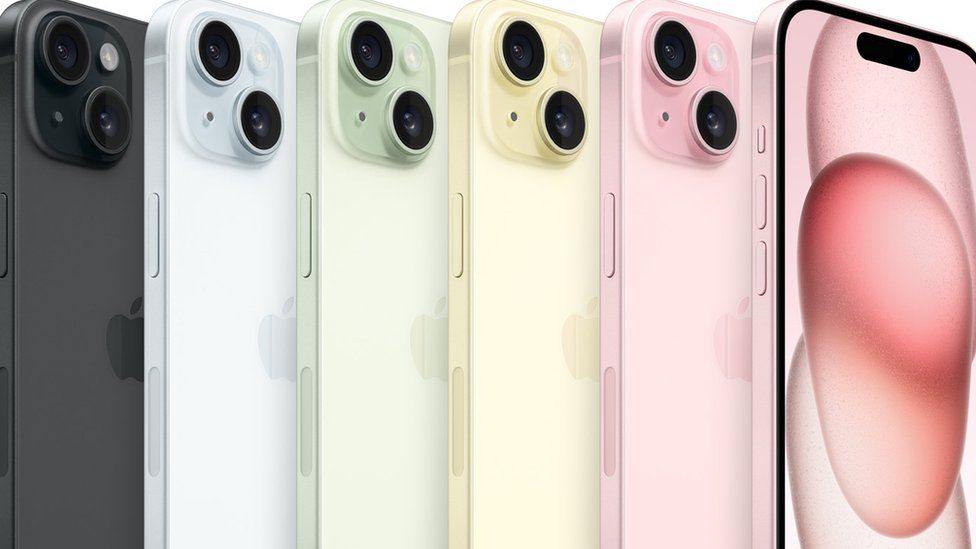-

-
-
Loading

Loading

Apple has announced that its new iPhone 15 will not feature the proprietary lightning charging port, following pressure from the EU. Instead, the iPhone 15 will come with a USB-C cable, which Apple considers to be the universally accepted standard. Alongside the new iPhone, Apple also unveiled a new Apple Watch series with an advanced chip. While some analysts believe that the lack of groundbreaking updates from Apple this year may disappoint some consumers, others argue that it reflects the maturity of the iPhone and Watch devices. Ben Wood from CCS Insight stated, "It reflects just how refined the iPhone and Watch devices are and how tough it has become to deliver truly disruptive updates every year." To address the transition from lightning to USB-C, Apple released a USB-C-to-lightning port adapter for £29 ($36). This adapter enables users to connect their existing lightning port accessories to the new USB-C-enabled iPhones or iPads. The new USB-C cable will also be compatible with new versions of AirPods Pro earphones and wired EarPods headphones. The decision to switch to USB-C was prompted by the EU's request for Apple to abandon its proprietary charging ports. The aim is to make life easier for consumers, save them money, and reduce e-waste by encouraging charger re-use. However, critics argue that this move may lead to an increase in discarded cables in the future. In response to these concerns, Apple used its launch event to make environmental commitments. The new Apple Watch range will be carbon neutral, and the company plans to increase the use of recycled materials in batteries and other parts of the Watch and iPhone. Additionally, Apple pledged to stop using leather in its accessories and aims to become carbon neutral as a business by 2030. Apple CEO Tim Cook described the new iPhone 15 range as the "best and most capable iPhones we've ever made." However, some experts question whether consumers will be willing to pay the high price tags for these devices, considering their similarities to previous models. The iPhone 15 starts at £799 in the UK, while the iPhone 15 Pro starts at £999. Paolo Pescatore, an analyst and founder of PP Foresight, highlighted the challenge Apple may face in convincing users to upgrade during the current cost-of-living crisis. He stated, "Some will see the new features as incremental, [although] collectively they enhance the overall experience which is priceless among Apple's core user base." Apple's shares experienced a slight decline on Tuesday, failing to recover from a sharp drop last week attributed to reports of the Chinese government banning officials from using iPhones. The release of a new smartphone series by Huawei in China also contributed to investor unease. According to analysts at Counterpoint Research, while the global smartphone market has experienced a decline in shipments, Apple's shipments saw the smallest drop among major smartphone manufacturers.